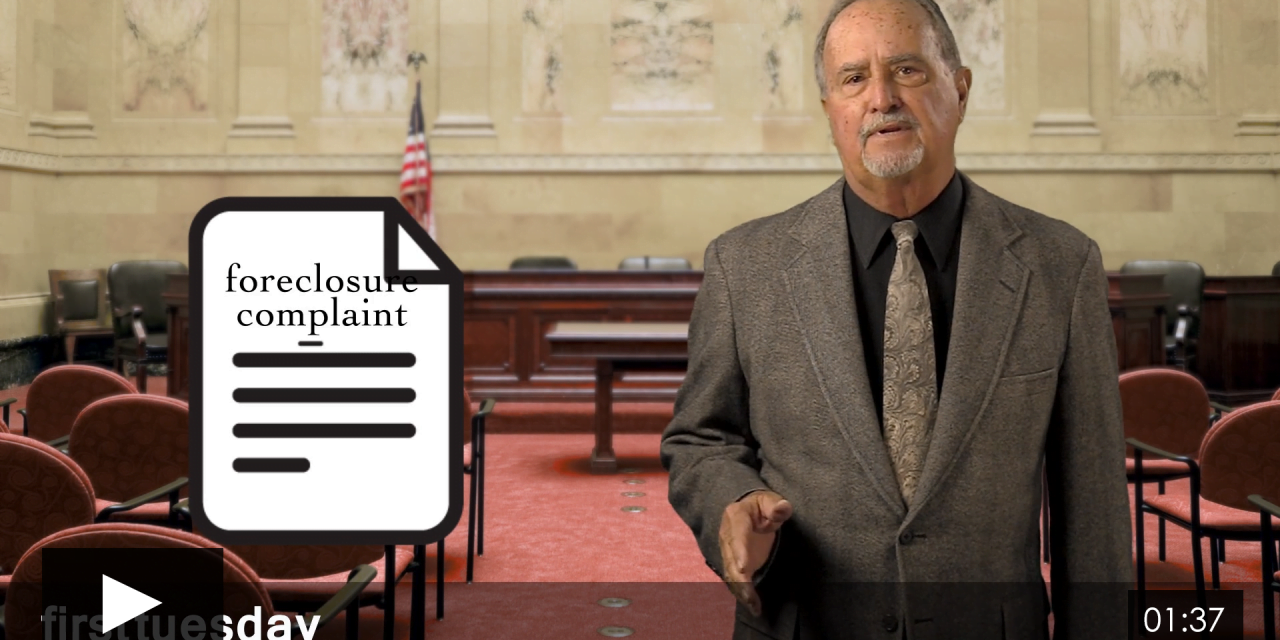For the prior video in this series introducing a mortgage holder’s judicial or nonjudicial foreclosure efforts, click here.
The judicial foreclosure process begins
The first step in the judicial foreclosure process is to file a complaint in the Superior Court of the county where the property is located.
The foreclosure complaint names as defendants the original borrowers named in the mortgage as the trustors. The complaint also names anyone else holding a recorded interest in the secured property junior to the foreclosing mortgage holder’s security interest in the property.
The trustee named in the mortgage is not involved in the lawsuit and is not named. A trustee under a mortgage has no interest in the property.
The mortgage holder foreclosing judicially needs to obtain a litigation guarantee of title insurance. The litigation guarantee lists all parties with a recorded interest in the property and their addresses of record. The guarantee further ensures that persons with a recorded junior interest to the foreclosing mortgage holder in the property are named and served. Thus, when noticed, their junior interest is also eliminated from title by the judicial foreclosure sale.
If a person holding an interest in the property junior to the mortgage holder’s trust deed is not named as a defendant, their lien or ownership interest:
- is not affected by the outcome of the foreclosure proceedings; and
- remains of record. [ Code of Civil Procedures §726(c)]
Additionally, when the foreclosing mortgage holder intends to seek a deficiency judgment, the original borrowers need to be named as defendants, whether or not they still hold an interest in the property. [Hutchison v. Barr (1920) 183 C 182]
At the time the lawsuit is filed, the foreclosing mortgage holder records a notice of pending action against title to the mortgaged property, also called a lis pendens.
The lis pendens places a cloud on the title of the secured property, giving notice of the judicial foreclosure action and subjecting later acquired interests to the results of the litigation.















